Kiosks & temporary Pavilions
Changes in the employment sector affect life styles, individual motivations, ideas on public space, the concept of collectivity itself
…. Change work, change the city….
Around this topic, Reporting System has built for Future Cities a public art project, Kiosks & temporary Pavilions .
The city we imagine is conceived and planned to offer flexibility and proximity through a dynamic idea of public-private subsidiarity which comprehends new possibilities and platforms of visibility that permit to enter the job market.
Kiosks & temporary Pavilions tries to imagine a job and occupation revitalization from a creative and contemporary perspective by the combination of self- promotion and public recognition.
It is the Milan of the future, place of experimentation of new living conceptions.
b) Strategy description and solution planning.
Reporting System intends to submit to Milan’s city administration the proposal to start, from a new point of view, a job - supporting program studied to offer answers to the questions of the city and contemporary society in order to increase the demand/supply of employment in the metropolitan area for all social and generational groups.
The project has multiple aims, those more specifically connected to employment and those concerning social cohesion and intercultural dialogue, proposing a creative answer to the most current issues that involve society and public space.
The project requires the elaboration of a public contest for the temporary and rotating attribution of Kiosks & temporary Pavilions.
The program has the intention to promote forms of associationism and micro enterprises. It refers to social groups that identify themselves according to different characteristics: for example national or supranational belonging, professional category, gender, age and others.
The applicants will have to behave as juridical subjects acting as guarantors for both the contract with the proposing authority and the civil and penal consequences.
Kiosks & temporary Pavilions are the core of this activity, small pavilions conceived as places that inspire friendship, a reassuring presence in the quarter in the respect of legality, where people have the opportunity to establish relationships.
In the small pavilions full time, part time and last minute jobs are offered (tailoring, embroidering, construction service, flying squads, baby sitting, human assistance, hairdressing, catering, entertainment etc.). In addition one can find information material concerning the culture and the traditions of the country as well as typical local products.
They can be understood as representative show cases of activities that are carried out elsewhere, like neighborhood bases for voluntary service. The goal is, in any case, to have a concrete presence, believing that this may contribute to a wider and competitive service supply and to an articulated social relations network that benefits the community.
The program is directed according to the laws in force that regulate the employment sector, the nonprofit sector and public space occupation. By doing so, on the one hand opportunities can be offered and on the other hand their own existence is guaranteed.
Public authorities make up lists of applying citizens to whom the positions will be attributed.
These small pavilions are going to have the same style so that their common concept will be clear, but at the same time the actors involved will take care of the external appearance and of the hanging garden on the roof.
Little by little, more and more pavilions will be added here and there in the city. They will be recognizable thanks to their similar structure but also different at first sight, contributing to the exterior and substantial design of the city.
The construction of the pavilions is based on a sustainable philosophy and on an ethic code using only natural materials such as wood, thus limiting the environmental impact. In order to have a significant cost reduction, the materials to be used can be f. e. recycled wooden planks or renewable materials cultivated with ecologic methods. The practice is sensitive to recycling and the reuse of waste material.
The shape of the structures is reminiscent of medieval turrets, covering a total area of approximately 10 square meters. The entrance is conceived according to the legislation for accessibility for disabled people. The roof is specially designed to contain different species of plants and flowers.
The interior is free and it will be furnished by the winners of the contest, following the criteria settled in the contract but also according to their creativity.
A large window, on the wall opposite to the entrance, illuminates the space with natural light. Alternatively it is possible to use solar-panels or ecologically- sustainable technology lightings.
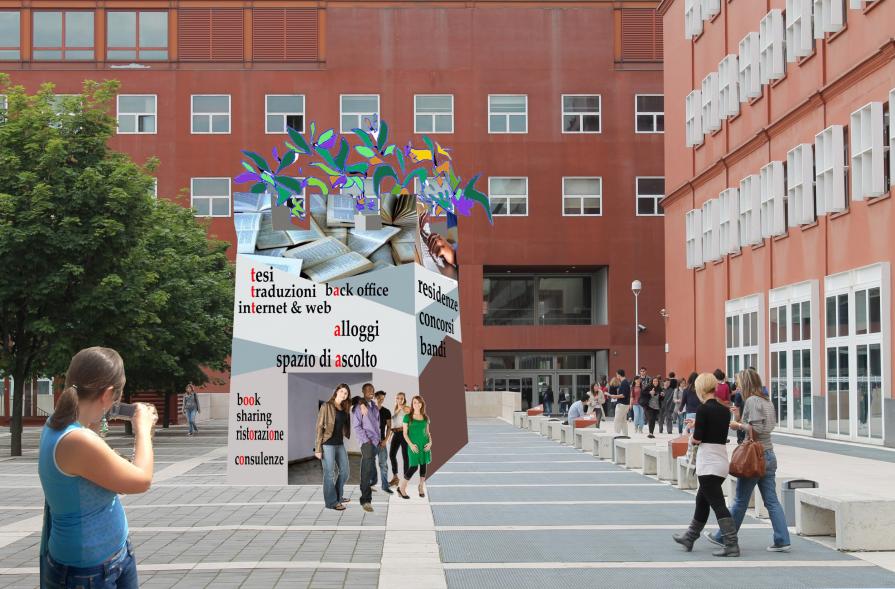


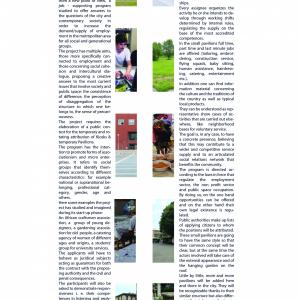
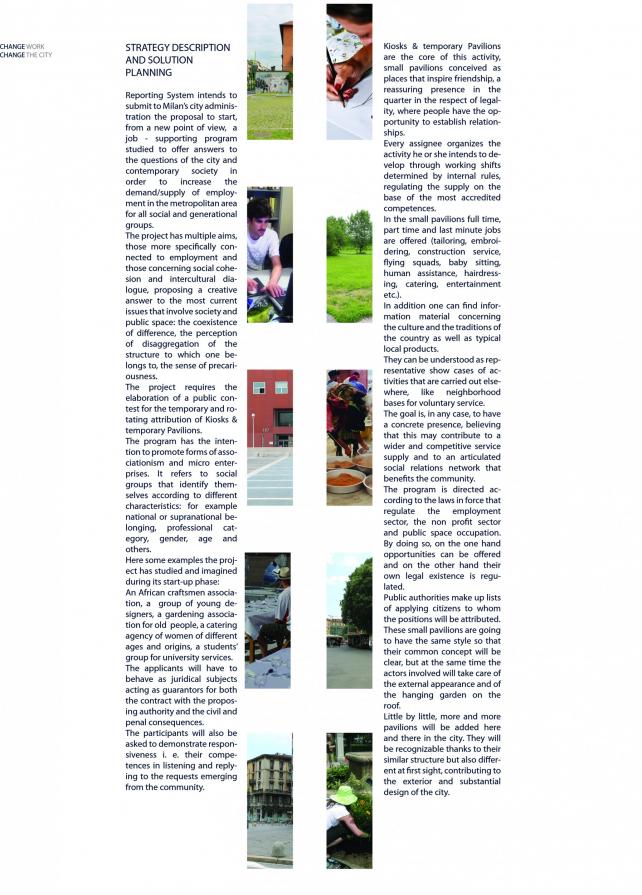
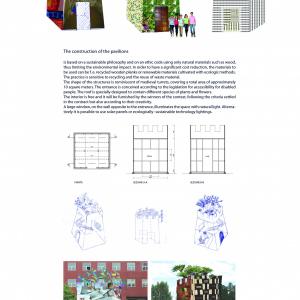
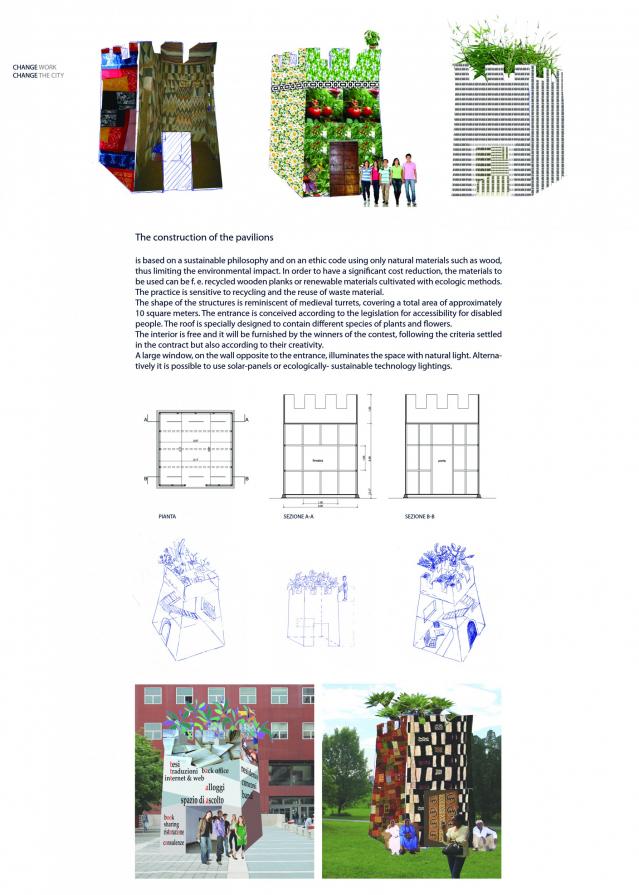
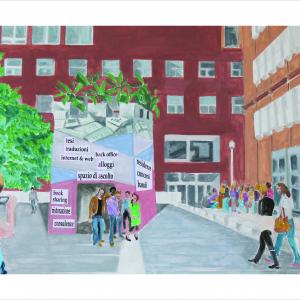
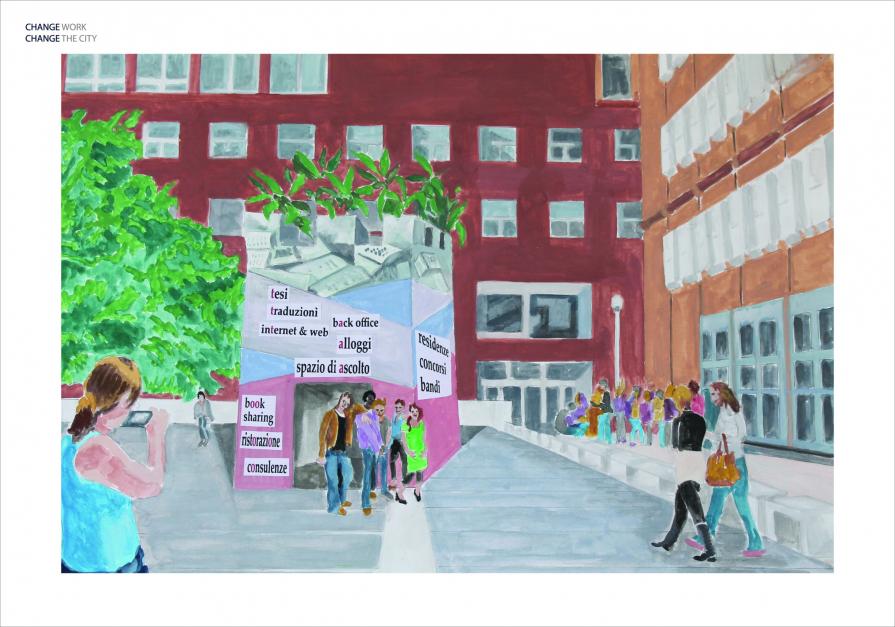
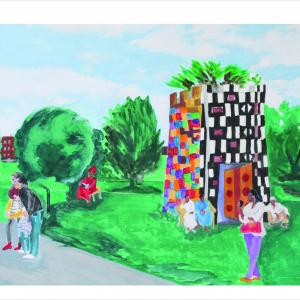
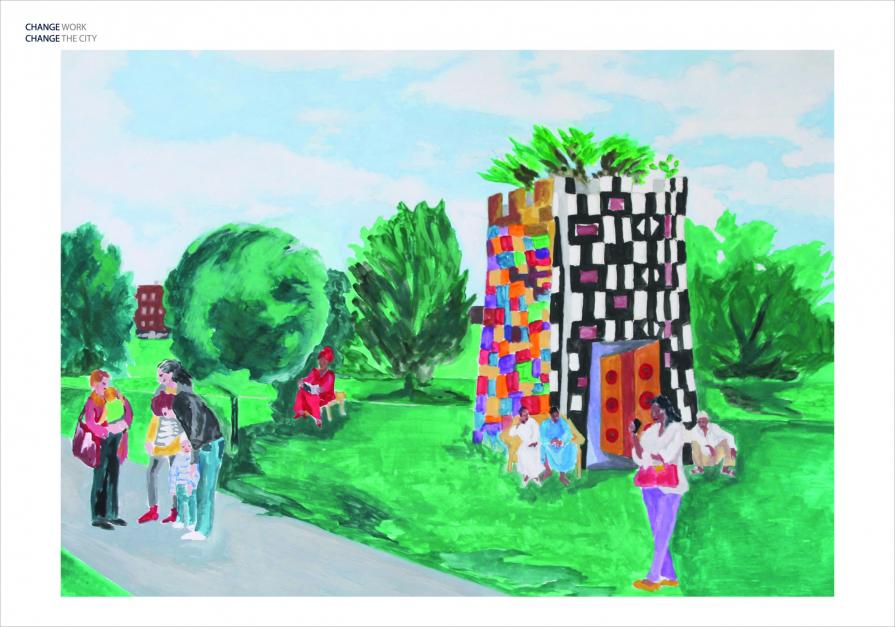




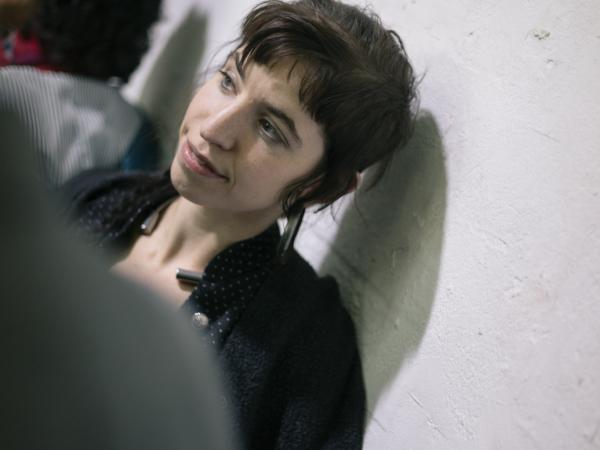
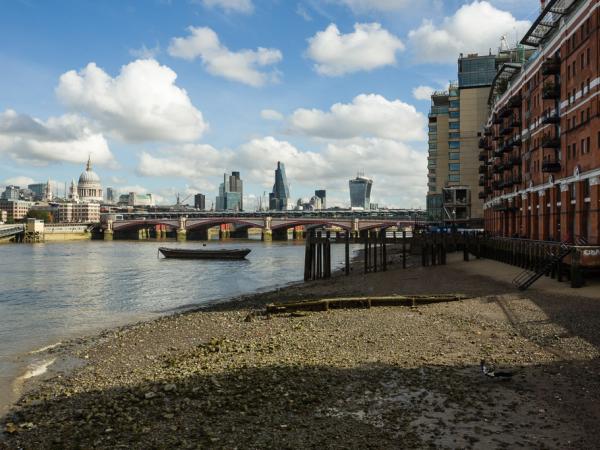
Comments 0
Say something